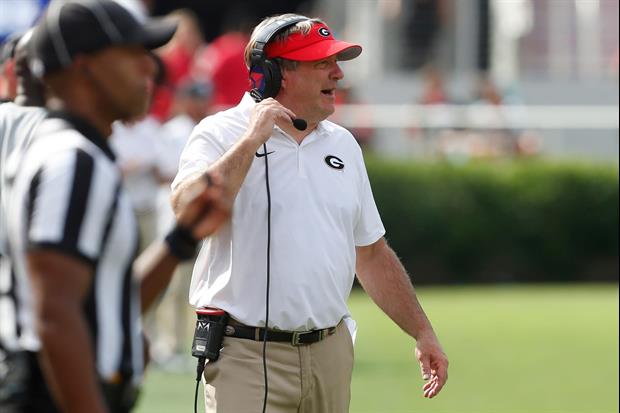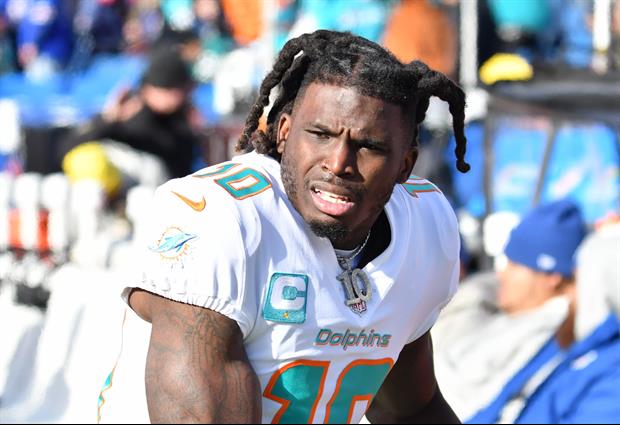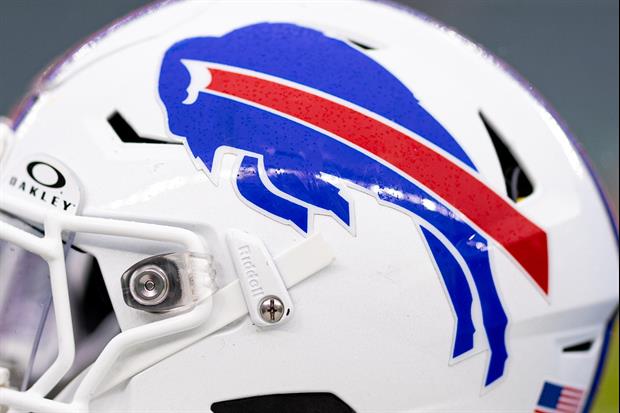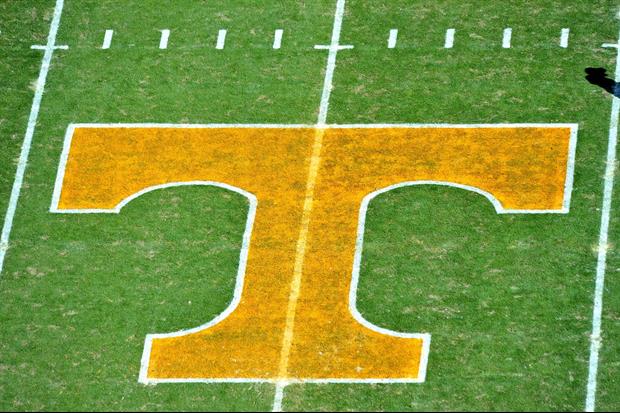AllbyMyRelf
| Favorite team: | Mississippi St. |
| Location: | Virginia |
| Biography: | |
| Interests: | Economics |
| Occupation: | |
| Number of Posts: | 4112 |
| Registered on: | 11/1/2014 |
| Online Status: | Online |
Recent Posts
Message
re: Putin: ‘The murder of Charlie Kirk was a disgusting atrocity.’
Posted by AllbyMyRelf on 2/21/26 at 7:36 am to hawgfaninc
I agree, but can we stop having ChatGPT write our tweets?
re: Do Trade Deficits matter?
Posted by AllbyMyRelf on 2/20/26 at 8:31 am to TerryDawg03
I use and have used m dashes in my writing for 10 years. I’m not giving them up just because ChatGPT uses it too
re: RI middle school had mural of Moloch?
Posted by AllbyMyRelf on 2/19/26 at 10:44 am to SlowFlowPro
This is revisionist.
re: Horrible News for some on this website
Posted by AllbyMyRelf on 2/18/26 at 1:46 pm to geoag58
Admittedly I don’t read posters’ post histories, but SFP strikes me as mostly libertarian with maybe a slight left lean on social issues (but still consistently libertarian)
re: Horrible News for some on this website
Posted by AllbyMyRelf on 2/18/26 at 1:28 pm to BarnHater
:lol: are these leftists in the room with you right now?
re: Kash announces a major find has been made regarding the funders of Antifa
Posted by AllbyMyRelf on 2/18/26 at 1:24 pm to hawgfaninc
You won’t believe number 6!
re: Outside of Ole Miss, Who Else Returns a Top 5 Roster?
Posted by AllbyMyRelf on 2/14/26 at 10:11 am to REBEL5 AC
Mississippi State does
re: OM Law Degree and Dangerous Precedence
Posted by AllbyMyRelf on 2/13/26 at 12:34 pm to NFLSU
That was almost Mississippi State’s head coach until the Giants stole him away from us
re: SEC Baseball Opening Day. Who's ready?
Posted by AllbyMyRelf on 2/13/26 at 8:29 am to PSS101
What’s the best overall tv/ streaming package to get if all I care about is SEC baseball? Anyone know?
re: Can anyone tell me about SCAD?
Posted by AllbyMyRelf on 2/9/26 at 11:43 am to ugasickem
quote:OP, this is an understatement. Beware.
VERY Liberal
re: What is the worst beach you’ve been to?
Posted by AllbyMyRelf on 2/5/26 at 4:24 pm to SaintlyTiger88
Virginia Beach. Dirty, crowded, reaks of weed.
re: People support nanny safety laws because they don’t want to feel bad about being scared
Posted by AllbyMyRelf on 2/3/26 at 1:08 pm to wareaglepete
States, since the founding of the country, have been understood to have the power to create laws governing the health, safety, morals, and general welfare of their citizens. That’s pretty broad latitude.
re: When was the last time a libertarian got anything accomplished?
Posted by AllbyMyRelf on 2/3/26 at 11:19 am to stuntman
In the first instance (recognizing things aren’t getting done) yes, it’s pragmatism vs purity.
In the second instance, no, it’s a shift in normative belief. The libertarian believes that freedom is the chief end and that government’s role, if any, is to protect and promote that freedom and accompanying rights.
However, people have shifts in what they view as the chief end. Some do not identify maximum liberty with maximum human flourishing. For a conservative, the chief end is the restraint of evil and the promotion of human flourishing.
An example would be something like heroin trafficking. A pure libertarian is fine with this. It’s just contract—people choosing for themselves what they want to do/ buy, so long as they don’t hurt other people. Conservatives usually do not view this as promoting human flourishing. They typically see this as evil to be restrained.
In this way, conservatives are not being pragmatic, they’re being consistent within a different framework.
Conservatives and libertarians are often confused with each other (Rand Paul for example) because they have overlapping policy positions, but they reach these positions by different modes.
In the second instance, no, it’s a shift in normative belief. The libertarian believes that freedom is the chief end and that government’s role, if any, is to protect and promote that freedom and accompanying rights.
However, people have shifts in what they view as the chief end. Some do not identify maximum liberty with maximum human flourishing. For a conservative, the chief end is the restraint of evil and the promotion of human flourishing.
An example would be something like heroin trafficking. A pure libertarian is fine with this. It’s just contract—people choosing for themselves what they want to do/ buy, so long as they don’t hurt other people. Conservatives usually do not view this as promoting human flourishing. They typically see this as evil to be restrained.
In this way, conservatives are not being pragmatic, they’re being consistent within a different framework.
Conservatives and libertarians are often confused with each other (Rand Paul for example) because they have overlapping policy positions, but they reach these positions by different modes.
re: When was the last time a libertarian got anything accomplished?
Posted by AllbyMyRelf on 2/3/26 at 11:07 am to stuntman
Most libertarians tend to be very academically minded and like systems. Systems need to be consistent. If you hold freedom in x sphere, you should hold it in y sphere.
This drive for philosophical consistency creates issues like the Libertarian Party’s endless ideological purity tests in their debates.
For libertarians that stop being libertarians, the change is sometimes just recognizing that the rigid purity causes nothing to be done.
But other times it’s just a shift in priorities. Instead of freedom becoming the end-all, oftentimes it becomes something like moral order or structure. Which is why people become more conservative as they get older. They’re also willing to sacrifice some freedom to get that order and stability.
This drive for philosophical consistency creates issues like the Libertarian Party’s endless ideological purity tests in their debates.
For libertarians that stop being libertarians, the change is sometimes just recognizing that the rigid purity causes nothing to be done.
But other times it’s just a shift in priorities. Instead of freedom becoming the end-all, oftentimes it becomes something like moral order or structure. Which is why people become more conservative as they get older. They’re also willing to sacrifice some freedom to get that order and stability.
re: When was the last time a libertarian got anything accomplished?
Posted by AllbyMyRelf on 2/3/26 at 11:02 am to burger bearcat
Milei is wrecking shop in Argentina.
re: Thune calls on the House GOP to pass the funding bill WITHOUT THE SAVE ACT
Posted by AllbyMyRelf on 2/2/26 at 6:37 pm to Ailsa
Outside of being a lobbyist, has Thune ever held a private sector job?
re: Have you ever negotiated a sign on bonus?
Posted by AllbyMyRelf on 2/1/26 at 8:11 pm to Revorising
Yes. At the time, large signing bonuses were still common in big law moves but on their way out. I made them think I was considering other offers and asked for one to seal it. They gave it to me.
re: Is it time to revisit US Term Limits, Inc vs Thornton with the Supreme Court
Posted by AllbyMyRelf on 1/31/26 at 8:07 am to Gee Grenouille
If it’s the case I’m thinking of, this is my favorite Thomas opinion.
re: The mutilation of children dam just broke
Posted by AllbyMyRelf on 1/30/26 at 8:31 pm to anc
Unfortunately adequate justice will not be done for the existing victims, but this makes me optimistic that there will be fewer victims going forward.
re: We need 8 years of Vance to fix this country, Why? Judges.
Posted by AllbyMyRelf on 1/30/26 at 7:51 pm to kilo
Conservative orgs like ADF have gotten really good at picking cases to bring to get laws changed. Their SCOTUS W-L record is pretty remarkable over the last few years.
re: We need 8 years of Vance to fix this country, Why? Judges.
Posted by AllbyMyRelf on 1/30/26 at 7:47 pm to CrazyCadillac
Appointing not terrible judges is about the only thing the GOP does. I think Vance would do a decent job here
Popular
 0
0












